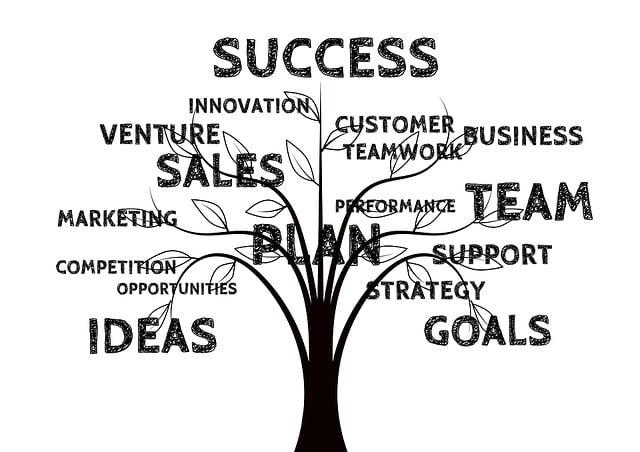The auto repair industry faces challenges with profitability due to rising costs, competition, and changing customer needs. Traditional methods are inadequate; however, AI systems offer a game-changer solution. Tailored AI coaching programs analyze data from repair records, feedback, and trends to identify inefficiencies, predict maintenance, and recommend personalized services. This results in quicker turnaround times, fewer errors, higher customer satisfaction, and increased revenue by streamlining processes and maximizing mechanic productivity through intelligent automation. Effective AI coaching programs are crucial for shops aiming to enhance operations and profitability, leveraging machine learning algorithms for accurate predictions and efficient, high-quality service delivery.
In the competitive auto repair industry, understanding profitability gaps is key to success. The rising costs of parts and labor pose significant challenges for vehicle shops. This is where AI systems emerge as a game-changer, revolutionizing how shops optimize operations and enhance customer satisfaction. By integrating AI, businesses can improve diagnostics, streamline scheduling, and personalize customer interactions, ultimately driving profitability. This article explores these strategies in detail, focusing on designing effective AI coaching programs tailored to the unique needs of auto repair establishments, leveraging AI systems for improving auto repair profitability.
- Understanding the Profitability Gap in Auto Repair Industry
- Integrating AI Systems: A Game-Changer for Vehicle Shops
- Designing Effective AI Coaching Programs for Optimal Results
Understanding the Profitability Gap in Auto Repair Industry

The auto repair industry faces a significant challenge in maintaining profitability due to various factors, including rising labor costs, competitive market pressures, and evolving customer expectations. Traditional methods of managing service operations often fall short in addressing these complexities, leading to potential losses for vehicle shops. This is where AI systems step in as a game-changer. By implementing advanced artificial intelligence technologies, auto repair businesses can optimize their processes and enhance overall profitability.
AI coaching programs specifically tailored for the automotive sector offer valuable insights and strategies. These programs leverage machine learning algorithms to analyze vast amounts of data, such as repair records, customer feedback, and market trends. With this data, AI systems can identify inefficiencies, predict maintenance needs, and recommend personalized service packages. As a result, vehicle shops can reduce turnaround times, minimize errors, and increase customer satisfaction while maximizing revenue and resource utilization, ultimately bridging the profitability gap.
Integrating AI Systems: A Game-Changer for Vehicle Shops

Integrating AI systems into vehicle shops is a game-changer, offering significant advantages in enhancing auto repair profitability. These intelligent technologies have the potential to revolutionize the way workshops operate by streamlining processes and optimizing efficiency. With AI, tasks that were once labor-intensive can be automated, allowing mechanics to focus on more complex repairs and improving overall productivity.
By leveraging machine learning algorithms, AI systems can analyze vast amounts of data from past repairs, diagnostics, and vehicle models. This enables them to provide accurate predictions and recommendations for troubleshooting, reducing the time spent on diagnosis and increasing the likelihood of successful, first-time fixes. As a result, shops can achieve faster turnaround times, reduce overhead costs, and ultimately, improve customer satisfaction by delivering high-quality services more efficiently.
Designing Effective AI Coaching Programs for Optimal Results

Designing effective AI coaching programs is paramount for vehicle shops aiming to enhance their operations and boost profits. These programs should focus on leveraging AI systems to streamline processes, improve efficiency, and provide personalized guidance to mechanics. By integrating AI into training routines, auto repair shops can offer tailored solutions that address specific challenges faced by their staff.
For optimal results, the coaching programs must be interactive and adaptive. AI algorithms can analyze performance data, identify knowledge gaps, and adjust training content accordingly. This ensures that each mechanic receives personalized instruction aligned with their skill level and areas of improvement. Ultimately, well-structured AI coaching empowers auto repair shops to improve productivity, reduce errors, and achieve higher levels of customer satisfaction, thereby increasing profitability.
AI coaching programs offer a promising solution to bridge the profitability gap in the auto repair industry. By integrating AI systems, vehicle shops can streamline operations, enhance efficiency, and improve overall profitability. Designing tailored AI coaching programs enables businesses to leverage advanced technologies, empowering their staff with the skills needed to navigate this evolving landscape. Embracing these innovations ensures vehicle shops remain competitive and thrive in an increasingly digital automotive sector.
